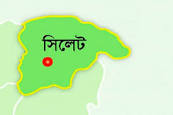Sylhet, Apr 1 : All tourist spots in Sylhet district have been shut down for the next two weeks to curb the spread of the deadly coronavirus, officials said Thursday.The directive has come from the local administration in the wake of the sudden surge in Covid-19 cases in Bangladesh.
Mohammad Altaf Hossain, superintendent of Tourist Police Sylhet Region, told UNB that all hotels, motels, resorts and tourist spots will remain shut for two weeks as per a government order.
He also urged people to wear face masks and follow other health protocols.
On March 18 last year, all tourist spots in the district were shut down to contain the spread of Covid-19 cases. The restrictions were revoked on September 9, subject to 25 conditions.
Government 18-point directives
In the wake of the fresh surge in the Covid-19 infections, the Prime Minister’s Office (PMO), on March 29, issued an 18-point directive for the next two weeks in an effort to restrict the spread of the coronavirus in Bangladesh.
The directives have taken immediate effect throughout the country and will remain in force for two weeks until further order, according to a notification signed by Principal Secretary Dr Ahmad Kaikaus.
All the ministries, divisions and agencies concerned have been asked to take necessary measures to implement the directives.
Covid-19 situation in Bangladesh
Bangladesh recorded 52 coronavirus-related deaths in 24 hours till Wednesday, the highest single-day death toll since the pandemic hit the country.
Besides, the country’s health authorities recorded over 5,000 fresh cases for the third straight day.
The latest figures showed 5,358 new cases in a 24-hour period until morning, which pushed up the caseload to 611,295, according to a handout issued by the Directorate General of Health Services (DGHS).
Besides, the coronavirus fatalities reached 9,046, with the new deaths.
Bangladesh reported its first coronavirus cases on March 8 last year and the first death on the 18th of that month, reports UNB.




